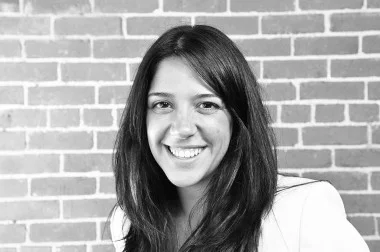This month Young Women in Business Toronto will be hosting its first financial literacy event. We are very excited about this topic and believe it is vital for all young women in business to be as proficient as possible in their personal financial matters. We are honoured to have Jessica Moorhouse as our keynote speaker at this event. Jessica is a full-time (award winning) blogger, podcast host of Mo’ Money and founder of the Millennial Money Meetup. She is in the process of being certified as a financial counsellor and will soon be publishing an e-course on personal finance. Despite this busy schedule, YWIB is very pleased that Jessica will be taking the time to pass on her extensive knowledge to our audience.
I had the pleasure of asking Jessica about financial literacy and its significance to the young women of today. Here’s what she had to say;
How and why did you get involved in financial literacy?
I’ve always been pretty frugal. It’s just how I was raised, so I’m thankful for learning that habit early in life. But my family never really talked about money. So when I graduated university, got my first job and moved out on my own, I had a lot to learn. I was tired of being the poor student and always feeling broke. So, I started reading books, blogs and educating myself on personal finance...and I got hooked. I realized that it wasn’t just about numbers, it was about creating habits, understanding the psychology of spending, and being smart and patient with your money so you could achieve some really big goals (like owning a home or retiring early). I realized that living an awesome life wasn’t just for those lucky enough to have been born rich. Anyone can achieve that life if they managed their money well.
Do you think most young people today have a good grasp of financial literacy?
Yes and no. Some people like me have good habits that they were passed down from their parents, and some people are starting their personal finance journeys well into their 30s. But what I am seeing more of is a hunger to learn, especially from millennials. The feedback that I’m constantly getting from readers of my blog, listeners of my podcast or members of my Facebook group is that people are tired of feeling broke all the time and not living the life they really want. And luckily now there are so many great resources around that can help people, if they actually put the work into it.
What do you think a young person just starting out on their career should know more about investing?
The first thing I think young people really need to understand is fees. Most people have no idea that they are paying fees on their investments, and those fees could take the form of thousands of dollars. And you still pay those high fees even if you lose money on your investments. That’s why I think it’s so important to look into investments with low fees, like index funds and ETFs.
Besides fees, I want young people to know that investing is complicated or only for people with MBAs to truly understand. In my early 20s, I thought I’d never make any money through investing because I had no idea what I was doing. I thought I had to be a CFP to really know what to do, but that’s just not the case. It is more complex than learning how to budget or pay down debt, but it’s nothing a good investing book or two can’t help with.
Saving or investing, which do you think is more important for a member of our audience, who lives in Toronto and wants to have a house, car, vacation and comfortable life?
Both. With personal finance, I don’t believe it should ever be one or the other. You don’t live your life “all or nothing”, so why would you try that with your money?
As far as saving, first things first start an emergency fund that 3-6 months’ worth of your cost of living. Make that a priority, because it’s usually the biggest reason people fall into debt. Once that’s taken care of, start saving for your financial goals. And that doesn’t mean just lumping cash into a few savings accounts. It may take that form for your short-term financial goals, but for your long-term investing goals (e.g. buying a home, retirement), invest that money so it can grow. And the sooner the better!
What is a personal lesson you learned about financial saving or investing that you want to pass onto a our audience?
The biggest financial lesson I’ve learned over the years is that the sky really is the limit for your life when you take control of your money. I didn’t grow up rich. Far from it. We lived very frugally all my life, and I continued to do so as an adult. But then I realized you need to be more than frugal to live a life that was truly free. You needed to have a spending plan (budget), you need to track every dollar you spent, you needed to change your spending habits so they aligned with your goals, you needed to pay off and avoid debt at all costs, and you needed to invest your money wisely as young as possible so it can grow and grow over the years. When you put all these elements into practice, you’ll be surprised how your life can change. You’re life will no longer be dictated by fear or stress. Instead, you’ll have the freedom of choice, financial security and the freedom to take risks and take on new opportunities.
I never thought I could be doing what I am right now, self-employed running my own business that I’m incredibly passionate about. But I did it on my own because I followed those key principles of personal finance. I’m nobody special, so if I can do it, I truly believe anyone else who doesn’t mind putting the hard work and effort into it can too.
Anything else you want to tell us about financial literacy?
Just that it’s never done. Like fitness, personal finance is something you need to constantly work out to get the results you desire. It doesn’t mean you have to be constantly reading The Financial Post or know everything about the stock market, but putting those practices into play is constant work. But if you’re consistent and mindful with your money, you’ll be surprised how far you can take yourself in 5, 10, 50 years!
Thank you Jessica for this advice, and for more information come out May 30th to hear Jessica speak. Tickets available online now.






